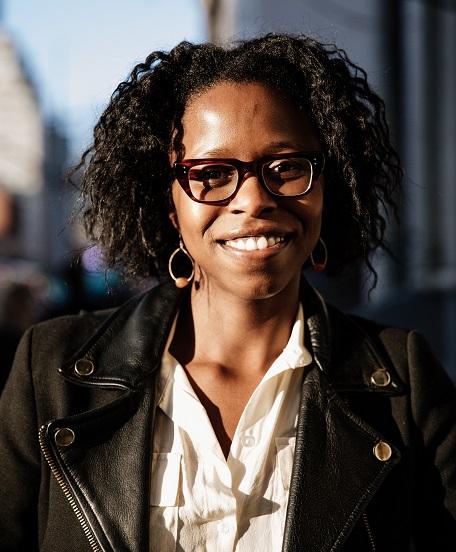
Professor Rashida Richardson joins Rutgers Law School this fall as a visiting scholar at the Camden location.
Professor Rashida Richardson joins the Rutgers Institute for Information Policy & Law this fall as a visiting scholar. The center designed to promote research, innovation and education in the field of information policy. Before coming to Rutgers, Richardson had a variety of legal experiences that include working at Facebook, serving as a staff attorney for the Center of HIV Law and Policy in New York City, and working as legislative counsel at the New York Civil Liberties Union/ACLU of New York.
“Though I went to law school wanting to be a civil rights litigator, both experience and exposure to different areas of law and the economy led me down a series of decisions and career pivots that all made sense at the time and now but were never part of a master plan,” she said.
Her varied experiences have led her to become an expert in the field of technology and the law. While at Rutgers, Richardson will be working on academic and public research regarding use and regulation of automated data systems. “My work is best described as a hybrid model of research and public policy that centers on racial justice,” she said. Some of her areas of expertise include privacy, surveillance, and legal issues involving emerging technology.
Richardson will be working closely with Professor Ellen Goodman, who is co-director of the Institute, and who has created a database of public algorithms. At the Newark law school location, Co-Dean David Lopez and Associate Law Library Director Caroline Young, have co-taught a course on artificial intelligence and how it impacts people of color.
While working in New York City, Richardson worked on a shadow report on New York City Automated Decision Systems Task Force and published the report titled “Confronting Black Boxes” which looked at the city’s use of data-driven technologies.
“When trying to identify areas or even types of technologies to focus on I try to consider what is missing in the academic field but is aligned with ongoing advocacy efforts,” Richardson said.
My goal is to produce research that is accessible to anyone (e.g. policymakers, advocates, investigative journalist, community members) but can be leveraged in ongoing policy debates.” Some of her long-term projects include reviewing civil rights and anti-discrimination laws and how they may contribute to problems with artificial intelligence.
“Rashida has already done pathbreaking work at the intersection of algorithms, big data, and civil rights. What she is working on now will advance the fields of technology law and civil rights law, helping us to understand especially how government implementation of algorithmic decision systems challenge the underpinnings of democracy, freedom, and equal rights,” said Goodman. “As we move headlong into a future of artificial intelligence, we desperately need new systems of accountability. The Rutgers Institute of Information Policy & Law is lucky, and I personally am thrilled, that Rashida will be doing some of this work with us.”
Richardson had this advice for students who may be interested in law and technology: I think many people think you need a strong technical background like a computer science degree to work on law and technology issues but that is not the case. Technologies like artificial intelligence are socio-technical artifacts so it is equally important to understand the underlying social issues, which can be gained from gaining practical experience in a variety of legal areas.”